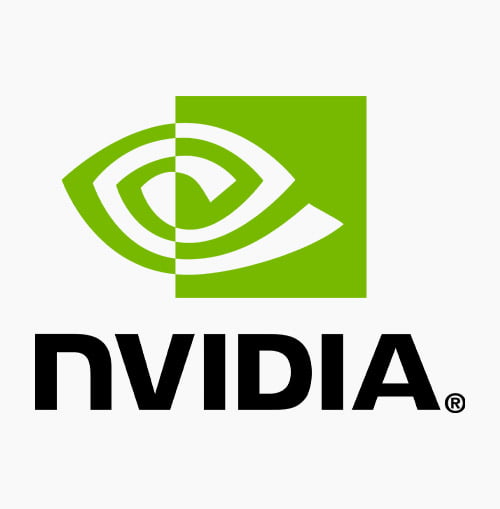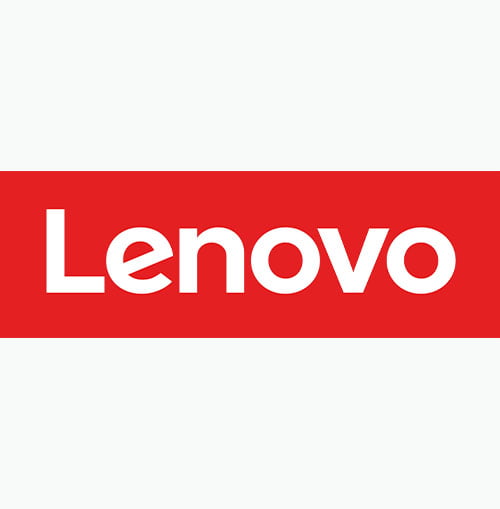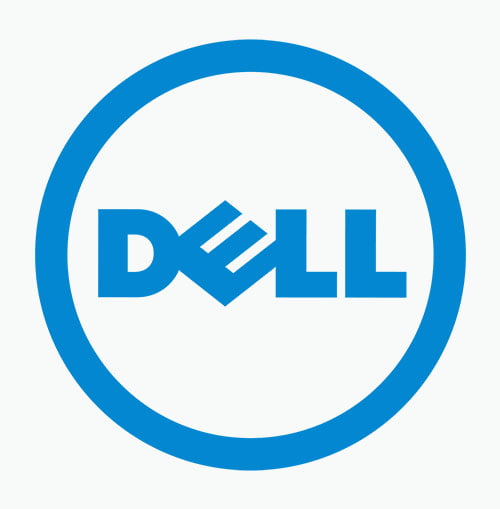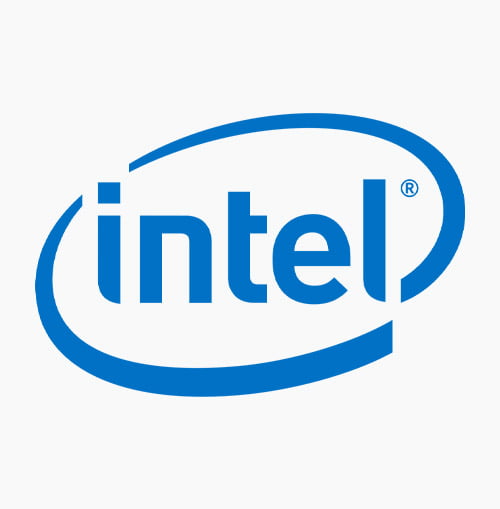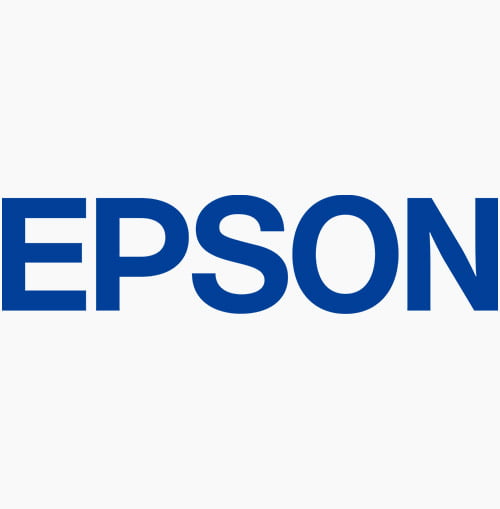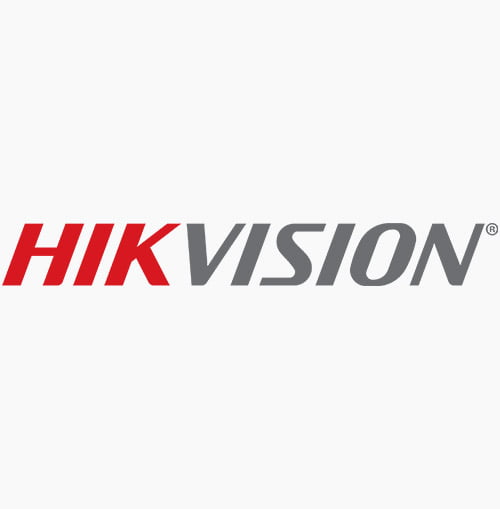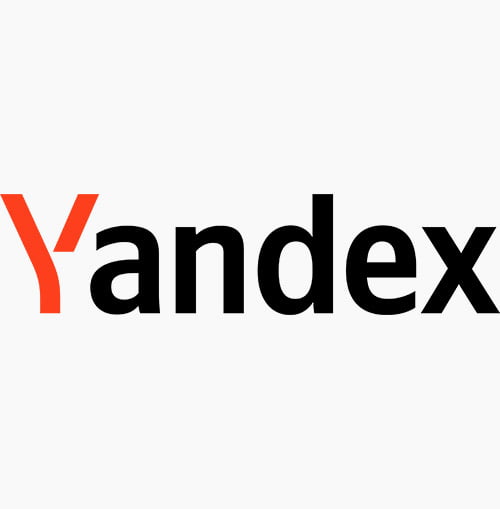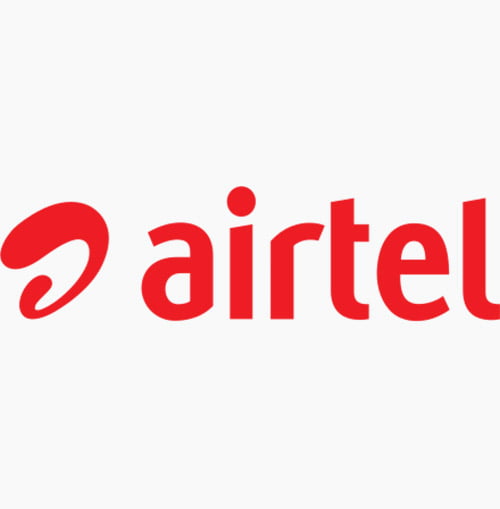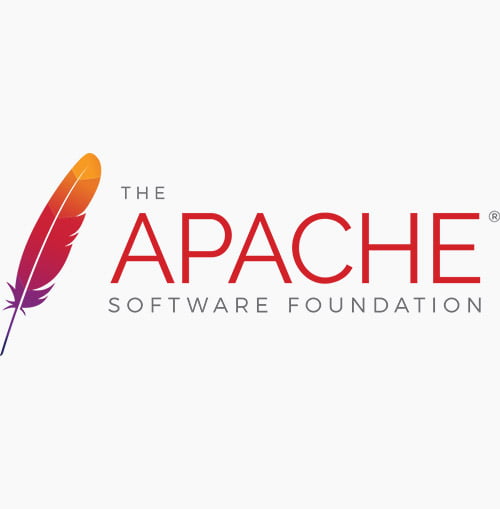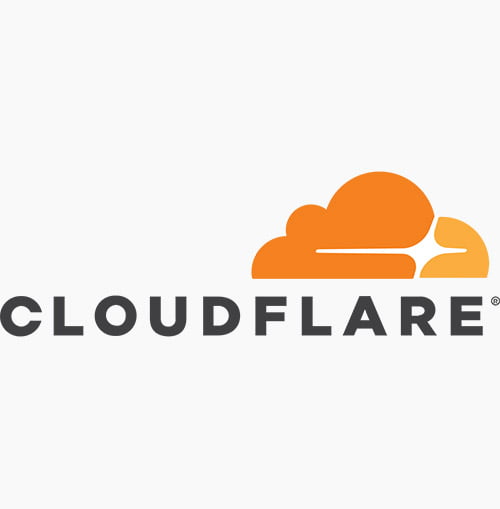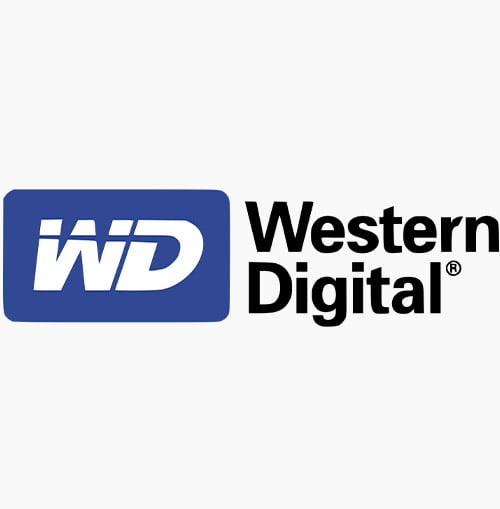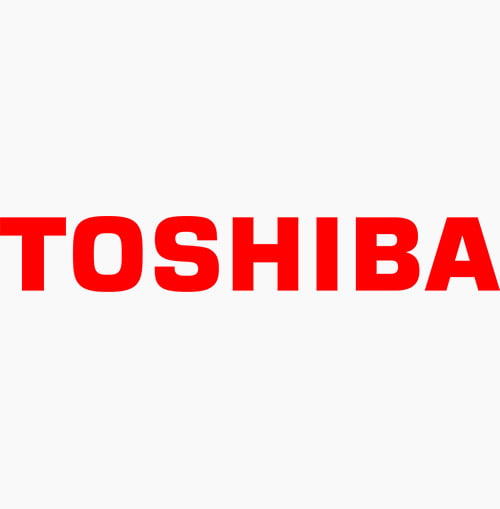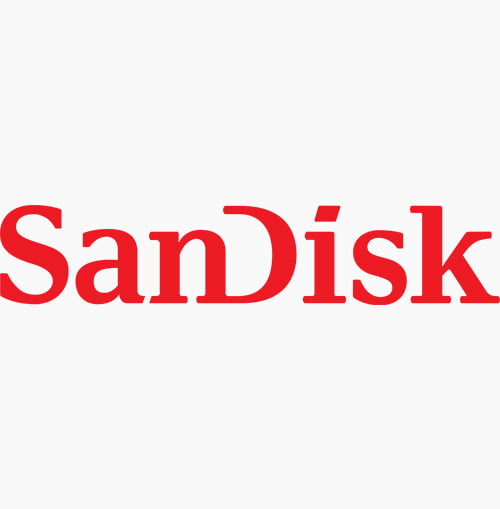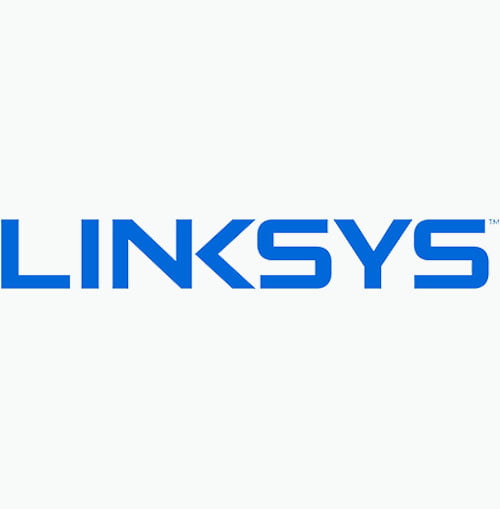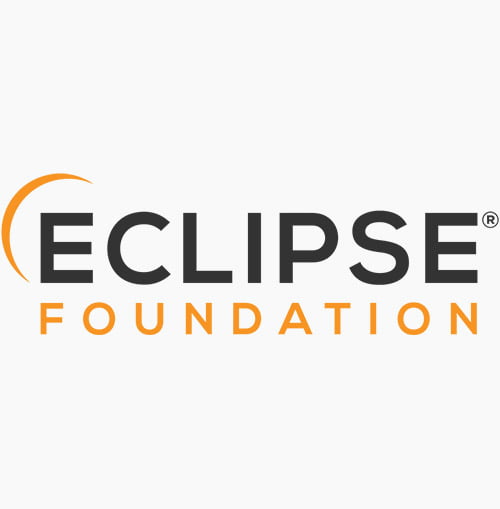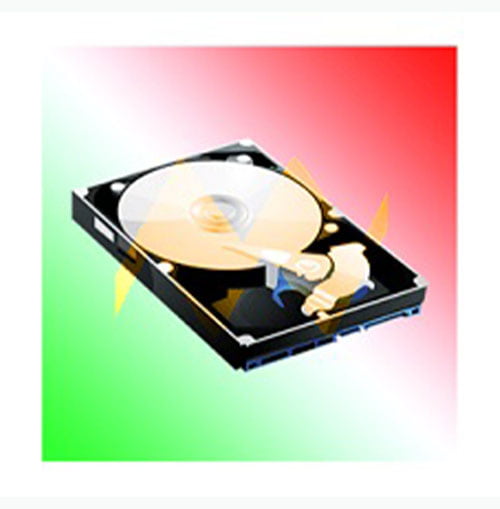Professional Server Administration, Management & Support Ubuntu, Windows Server, CentOS, Red Hat (RHEL), SUSE Linux, Fedora, Debian, AlmaLinux, and Rocky Linux 9 Kampala, Uganda
We offer expert management, support, and administration for servers running Ubuntu, Windows Server, CentOS, Red Hat Enterprise Linux (RHEL), SUSE Linux, Fedora, Debian 11, AlmaLinux 8 & 9, and Rocky Linux 9 for individuals, businesses, companies, organizations, and firms in Kampala, Entebbe, Mbarara, Gulu, Jinja, and beyond. Ensure seamless, secure, and reliable server performance with our tailored solutions.

What are Server management, support, and administration services?
Server management, support, and administration services involve the proactive oversight of a company’s server infrastructure to ensure optimal performance, security, and reliability. This includes tasks such as setting up and configuring server operating systems, monitoring performance, and ensuring that servers are running efficiently. Regular security updates, software patches, and backups are implemented to protect against vulnerabilities and data loss. These services also involve troubleshooting and resolving issues to minimize downtime, ensuring business continuity.
In addition to server management, these services provide user and access management, allowing businesses to control who can access certain resources. Companies like Isazeni Solutions offer customized solutions tailored to specific business needs, whether it’s managing running Ubuntu, Windows Server, CentOS, Red Hat Enterprise Linux (RHEL), SUSE Linux, Fedora, Debian 11, AlmaLinux 8 & 9, and Rocky Linux 9, or other operating systems for individuals, businesses, companies, organizations, and firms in Kampala, Entebbe, Mbarara, Gulu, Jinja, and beyond. By handling everything from hardware updates to disaster recovery, these services help businesses focus on their core operations without worrying about the complexities of server management.
Explore Our Linux Server Management Solutions Today

How much does Server management, support, and administration services cost in Kampala Uganda?
The cost of professional server administration, management, and support in Kampala, Uganda varies based on several factors such as server type, level of support required, number of servers, and the complexity of the infrastructure. Below is an estimate of costs based on typical scenarios:
Factors Affecting Cost Server management, support, and administration services in Kampala Uganda
- Type of Server: Different operating systems may have different support requirements.
- Number of Servers: Costs increase with the number of servers.
- Support Level: Basic, intermediate, or advanced support packages.
- Frequency of Support: Monthly, quarterly, or annual support plans.
- Customization Needs: Custom configurations, additional features, or services such as security auditing or performance tuning.
- Location: Travel costs for onsite support may apply outside Kampala.
Typical Pricing Scenarios for Server management, support, and administration services in Kampala Uganda
|
Support Plan |
Operating System |
Included Services |
Estimated Monthly Cost (UGX) |
Example Scenario |
|
Basic Plan |
Ubuntu, Debian, AlmaLinux, Rocky Linux |
Monitoring, basic security updates, periodic backups, remote support |
500,000 – 800,000 |
Small business with one web server needing basic monitoring and occasional updates. |
|
Standard Plan |
Windows Server, RHEL, CentOS, SUSE |
Full monitoring, updates, security patches, backup management, remote support, 24/7 availability |
800,000 – 1,200,000 |
Mid-sized company running multiple applications on two servers, needing regular maintenance and 24/7 support. |
|
Advanced Plan |
All OS types (Ubuntu, Windows, RHEL, etc.) |
Full server management, security audits, optimization, disaster recovery, on-call support, remote and onsite services |
1,200,000 – 2,000,000+ |
Large enterprise with complex infrastructure (e.g., 5+ servers), requiring custom management and disaster recovery plans. |
|
One-time Setup |
All OS types |
Initial configuration, server setup, security hardening, and performance tuning |
1,000,000 – 3,000,000 (one-time) |
Startup or organization setting up a new server for the first time, needing a secure and optimized configuration. |
Examples & Scenarios
- Scenario 1: Small E-Commerce Business
- OS: Ubuntu Server
- Servers: 1
- Required Services: Monitoring, backups, basic security updates
- Cost: UGX 600,000/month
- This business may require basic administration to ensure the web server stays up and running, with occasional software updates.
- Scenario 2: Mid-sized Organization (NGO)
- OS: Red Hat Enterprise Linux (RHEL)
- Servers: 2
- Required Services: Regular monitoring, security updates, full backup management, remote support, 24/7 availability
- Cost: UGX 1,000,000/month
- This organization might use multiple servers for email, data storage, and applications, requiring full-time monitoring.
- Scenario 3: Large Enterprise
- OS: Windows Server, CentOS, SUSE Linux
- Servers: 5
- Required Services: Complete server management, security audits, disaster recovery, optimization, 24/7 remote and onsite support
- Cost: UGX 2,500,000/month
- This enterprise may run mission-critical applications and needs advanced support, including regular security auditing and disaster recovery services.
These prices are estimates and may vary based on the provider, specific needs, and market conditions in Kampala and Uganda.
Explore Our Linux Server Administration Solutions Today

Importance of professional server administration, management, and support services in Kampala Uganda
For individuals, businesses, organizations, and firms in Kampala, Entebbe, Mbarara, Gulu, Jinja, and beyond, investing in professional server administration, management, and support helps ensure reliable, secure, and optimized server performance. Businesses can focus on their core operations by managing risks, reducing downtime, improving security, and scaling systems effectively without worrying about IT infrastructure.
Server administration, management, and support are critical services for businesses, organizations, and individuals using operating systems like Ubuntu, Windows Server, CentOS, Red Hat Enterprise Linux (RHEL), SUSE Linux, Fedora, Debian, AlmaLinux, and Rocky Linux 9.
Here are 10 key importance of professional server administration, management, and support services:
- Optimal Server Performance
– Regular monitoring and tuning of server resources such as CPU, memory, and disk usage help servers run efficiently. Poor performance can negatively impact business operations, slow websites, and degrade user experience.
- Enhanced Security
– Server management ensures that security patches and updates are applied regularly to prevent vulnerabilities from being exploited. Firewalls, intrusion detection systems, and antivirus software are maintained to protect against threats like malware, hacking, and data breaches.
- Minimized Downtime
– Professional server management ensures that servers remain online and functional, with minimal downtime. This is achieved through proactive monitoring, immediate issue resolution, and proper resource allocation, ensuring high availability of services and preventing business interruptions.
- Data Backup and Recovery
– Data is a crucial asset, and regular backups ensure that critical information can be restored in case of accidental deletion, hardware failure, or cyber-attacks. Server administrators set up automated backup systems and implement disaster recovery plans to safeguard business continuity.
- Cost-Efficiency
– Outsourcing server administration and support can reduce operational costs for businesses by eliminating the need to hire full-time IT staff. Managed services provide expertise at a fraction of the cost, allowing businesses to focus resources on core activities rather than IT infrastructure.
- Compliance and Regulation
– Many industries, such as finance and healthcare, are subject to strict regulations regarding data privacy and security. Server management ensures that systems are compliant with standards like GDPR, PCI-DSS, or HIPAA, protecting the business from legal issues and penalties.
- Scalability
– As businesses grow, their IT needs evolve. Server management allows for seamless scalability by efficiently managing resources, integrating new hardware or software, and ensuring systems can handle increasing workloads without compromising performance.
- Troubleshooting and Issue Resolution
– Server issues such as system crashes, slowdowns, or network errors can severely disrupt business operations. Professional server support services provide rapid troubleshooting and resolution of problems, minimizing downtime and ensuring business continuity.
- Customization and Flexibility
– Different businesses have unique requirements. Server management services offer tailored solutions that match specific business needs, whether it’s setting up virtual machines, optimizing databases, or managing multiple server environments like Ubuntu, CentOS, and Windows Server simultaneously.
- 24/7 Support and Monitoring
– Continuous support and monitoring ensure that businesses have round-the-clock assistance, especially in critical situations. This is particularly valuable for businesses that operate in multiple time zones or need to maintain continuous online presence, such as e-commerce platforms.
Explore Our Linux Server Support Solutions Today
Easy Onboarding and Support Process for your Server Administration, Management, and Support services in Kampala, Uganda
This 10-step process provides a comprehensive and hassle-free approach to server administration and support for businesses in Kampala and beyond. Your easy onboarding and support process simplifies server administration for clients, starting with a $100 consultation fee that covers the on-site diagnosis and provides a clear path forward. From the initial consultation to ongoing support, clients benefit from expert engineering, tailored solutions, and a commitment to secure, high-performing server infrastructure. This process ensures that businesses in Kampala, Entebbe, Mbarara, Gulu, Jinja, and beyond can focus on their operations, leaving the complexities of server management to professionals.
Here’s a 10-step Easy Onboarding and Support Process for your Server Administration, Management, and Support services in Kampala, Uganda when needed:
-
Initial Inquiry and Consultation Request
– Step: The client contacts the team via phone, email, or website to request support or inquire about server management services.
– Action: The client is charged a $100 consultation fee, which covers the cost of sending an engineer to their facility for an initial diagnosis.
– Outcome: Once the fee is paid, the scheduling for the engineer’s visit begins.
-
On-Site Diagnosis and Facility Assessment
– Step: A professional engineer visits the client’s location to assess the server infrastructure.
– Action: The engineer inspects hardware, software, server performance, and security configurations for systems like Ubuntu, Windows Server, CentOS, Red Hat, etc.
– Outcome: The client receives a full diagnosis report that outlines issues, server health, and potential areas for improvement.
-
Consultation and Solution Proposal
– Step: Based on the on-site diagnosis, the technical team drafts a tailored solution plan to resolve any issues and optimize server performance.
– Action: The proposal includes:
– A breakdown of recommended actions
– Estimated timelines for repairs or optimization
– Initial costs for the ongoing support or one-time fixes
– Outcome: The client reviews and approves the proposal to move forward with the service.
-
Service Agreement and Onboarding
– Step: After agreeing to the solution proposal, the client signs a service agreement outlining terms and conditions.
– Action: The agreement covers:
– Service level agreements (SLAs) like response times, guaranteed uptime, and type of support (remote or on-site)
– Billing terms, whether a monthly retainer or pay-per-service
– Outcome: The onboarding process kicks off, and the client is fully integrated into the support system.
-
Procurement of Spare Parts or Software (If Needed)
– Step: If the diagnosis identifies the need for spare parts or software upgrades, a procurement process is initiated.
– Action: A quotation is prepared detailing the required spares (e.g., hard drives, memory modules, server racks) or software licenses (e.g., RHEL subscriptions, Windows Server licenses).
– Outcome: Upon client approval of the procurement quotation, the necessary parts or software are sourced and delivered, either from local suppliers or international vendors.
-
Server Configuration and Setup
– Step: Once all parts or software are procured, the technical team proceeds with the server setup, repairs, or configuration.
– Action: The team installs or upgrades the server operating systems, configures network settings, implements security features, and optimizes performance.
– Outcome: The client’s server is fully operational, and the infrastructure is aligned with their business requirements.
-
Ongoing Monitoring and Support
– Step: With the server running smoothly, 24/7 monitoring is initiated to ensure optimal performance.
– Action: Tools like Nagios, Zabbix, or SolarWinds are used to monitor the server for issues like downtime, security threats, or performance bottlenecks. Alerts are automatically generated and addressed promptly.
– Outcome: The client benefits from proactive issue detection and resolution, preventing potential problems from affecting business operations.
-
Regular Maintenance and Software Updates
– Step: Scheduled maintenance is performed to ensure that the server infrastructure remains secure and up-to-date.
– Action: The technical team applies software patches, firmware updates, and security configurations to maintain server health. Regular backups are taken, and restoration processes are tested.
– Outcome: The client enjoys uninterrupted server performance, with regular updates protecting against vulnerabilities.
-
Performance Reviews and Scalability Planning
– Step: Periodic performance reviews are conducted to assess server capacity and future scalability needs.
– Action: The team assesses current server loads, resource utilization, and the client’s growth trajectory. Recommendations are made to upgrade hardware, software, or cloud infrastructure if needed.
– Outcome: The client’s infrastructure is ready to scale efficiently as their business expands, ensuring long-term reliability and performance.
-
Dedicated Support and Emergency Response
– Step: The client has access to ongoing dedicated support for both routine queries and emergency situations.
– Action: A helpdesk and technical team are available for remote troubleshooting, as well as on-site support for critical issues. Emergency response times are dictated by the service level agreement (SLA), ensuring minimal downtime.
– Outcome: The client receives prompt and professional support whenever issues arise, ensuring continuity in operations.
Explore Our Linux Server Support Solutions Today

isazeni solutions strategies and approaches for server administration, management, and support services in Kampala
Our strategies and approaches ensure that server administration, management, and support services in Kampala, Uganda, provide clients with reliable, secure, and optimized server performance. By combining proactive monitoring, security best practices, automation, and scalability, businesses can focus on their core operations while enjoying seamless server performance.
Here are 10 key strategies and approaches used in Server Administration, Management, and Support services in Kampala, Uganda
-
Proactive Monitoring and Alerts
– Our Strategy: Implement 24/7 monitoring of server resources, network traffic, disk space, CPU usage, and memory to detect any unusual activity or system bottlenecks early.
– Our Approach: Use monitoring tools like Nagios, Zabbix, or SolarWinds to provide real-time data and automated alerts. This ensures that potential issues are identified and resolved before they cause system failures or downtime.
-
Automated Backup and Disaster Recovery
– Our Strategy: Regularly back up critical server data and implement a disaster recovery plan to ensure business continuity.
– Our Approach: Utilize automated backup solutions such as Rsync, Acronis, or Veeam. Data is backed up daily or weekly to offsite locations or cloud services, and a disaster recovery plan is tested periodically to ensure rapid recovery in case of data loss or server failure.
-
Security Hardening and Patch Management
– Our Strategy: Apply the latest security patches and updates to server operating systems and applications to prevent vulnerabilities.
– Our Approach: Regularly audit the server for security weaknesses using tools like Nessus or OpenVAS. Implement a strict patch management policy to ensure timely updates for Ubuntu, Windows Server, CentOS, RHEL, and other systems. Security measures such as firewalls, encryption, and intrusion detection are also applied.
-
Load Balancing and Traffic Optimization
– Our Strategy: Distribute network traffic across multiple servers to optimize performance and ensure high availability.
– Our Approach: Use load balancing solutions like HAProxy or NGINX to distribute web traffic efficiently. By balancing the workload, server performance is optimized, and downtime is minimized, especially during peak traffic periods.
-
Virtualization and Containerization
– Our Strategy: Optimize server resources by deploying virtual machines (VMs) or containers to run multiple applications on a single server.
– Our Approach: Use virtualization technologies like VMware or Hyper-V and container solutions like Docker or Kubernetes to create isolated environments for applications. This improves server utilization, reduces hardware costs, and simplifies server management.
-
User Access Control and Role Management
– Our Strategy: Implement strict access controls and define roles to manage who can access server resources and data.
– Our Approach: Use access control policies like Role-Based Access Control (RBAC) and enforce multi-factor authentication (MFA). User permissions are regularly reviewed to ensure that only authorized personnel have access to sensitive data and applications.
-
Regular Server Audits and Performance Tuning
– Our Strategy: Conduct periodic server audits to assess system performance and identify areas for improvement.
– Our Approach: Analyze key server metrics like response times, database performance, and application load times. Performance tuning is applied to optimize the server’s database queries, adjust system configurations, and improve overall efficiency.
-
Automation and Scripting
– Our Strategy: Use automation tools and scripts to simplify repetitive tasks and improve server management efficiency.
– Our Approach: Write custom scripts or use tools like Ansible, Puppet, or Chef to automate tasks such as software installations, server configuration, and system updates. This reduces human error and ensures consistency in server management tasks.
-
Data Encryption and Secure Communication
– Our Strategy: Implement data encryption for both stored data (data-at-rest) and data transmitted over the network (data-in-transit).
– Our Approach: Use encryption technologies like SSL/TLS for secure communication between servers and applications. Encrypt sensitive data stored on servers using technologies like LUKS or BitLocker to protect against unauthorized access.
-
Scalability and Resource Optimization
– Our Strategy: Ensure the server infrastructure can scale easily to accommodate business growth and increased workloads.
– Our Approach: Plan for horizontal and vertical scalability by adding new servers or upgrading existing server resources (RAM, CPU, storage). Use cloud services such as AWS, Google Cloud, or Azure for flexible, on-demand scaling, ensuring that the infrastructure can grow with business needs.
Explore Our Linux Server Support Solutions Today

Industries we serve in Kampala, Who is this professional server administration, management, and support for?
Professional server administration, management, and support services are essential across various industries in Kampala, Entebbe, Mbarara, Gulu, Jinja, and beyond, ensuring optimal performance, security, and scalability for their specific needs. Whether it’s maintaining critical healthcare systems, supporting online retail businesses, or securing government data, server administration, management, and support play a crucial role in enabling the smooth functioning of these industries.
Here are 30 key industries and sectors that benefit from server administration, management, and support services:
- Information Technology (IT) Companies in Kampala, Uganda
– Who it’s for: Software developers, tech startups, and managed service providers (MSPs).
– Why:IT companies require server management to host applications, manage client systems, and ensure software development environments are secure and efficient. Reliable server administration ensures uptime and performance in dynamic development, testing, and production environments.
- Financial Institutions (Banks, Microfinance, and Insurance) in Kampala, Uganda
– Who it’s for: Banks, microfinance institutions, insurance companies, and mobile money platforms.
– Why:Financial organizations rely on secure, high-performance servers to handle sensitive transactions and data. Server management ensures compliance with regulations, security protocols, and uninterrupted access to financial services.
- Healthcare Institutions (Hospitals, Clinics, and Medical Research Centers) in Kampala, Uganda
– Who it’s for: Hospitals, clinics, diagnostic centers, and research institutions.
– Why:Healthcare facilities store vast amounts of confidential patient data that need to be managed securely and efficiently. Professional server support ensures electronic medical records (EMRs), telemedicine platforms, and research databases are accessible, compliant with healthcare regulations, and always protected.
- Education Sector (Universities, Schools, and E-Learning Platforms) in Kampala, Uganda
– Who it’s for: Schools, universities, technical institutes, and e-learning platforms.
– Why:Educational institutions rely on servers for managing student information systems, online learning platforms, and virtual classrooms. Server management supports seamless operation of learning management systems (LMS), remote access to educational resources, and protection of sensitive student data.
- E-Commerce Businesses in Kampala, Uganda
– Who it’s for: Online retailers, marketplaces, and digital product sellers.
– Why:E-commerce platforms must ensure that their websites and online stores run 24/7 without downtime. Server administration provides scalable infrastructure, security measures against cyberattacks, and performance optimization to handle high-traffic volumes, especially during peak sales periods.
- Government Agencies and Public Sector Organizations in Kampala, Uganda
– Who it’s for: Ministries, government departments, and municipal services.
– Why:Government agencies rely on servers for providing public services such as e-governance platforms, tax systems, and public health information. Server management ensures these critical infrastructures are secure, compliant with regulations, and offer uninterrupted services to citizens.
- Telecommunications Companies in Kampala, Uganda
– Who it’s for: Telecom service providers, internet service providers (ISPs), and communication firms.
– Why:Telecom companies need robust server management to handle voice, data, and network services. This includes optimizing servers for high traffic, managing network security, and maintaining customer relationship management (CRM) systems to provide seamless communication services.
- Manufacturing and Supply Chain Firms in Kampala, Uganda
– Who it’s for: Factories, production plants, supply chain companies, and logistics firms.
– Why:Manufacturing firms need reliable servers to manage production processes, inventory management systems, and logistics operations. Server administration helps maintain business-critical applications, track supply chain performance, and optimize operations for efficiency.
- Media and Entertainment in Kampala, Uganda
– Who it’s for: TV stations, radio stations, digital content creators, and media production companies.
– Why:Media companies need server management to host large digital content files, manage video/audio streaming services, and store archives securely. Optimized servers ensure fast access to content, secure storage, and smooth delivery of online media services without downtime or quality loss.
- Non-Governmental Organizations (NGOs) in Kampala, Uganda
– Who it’s for: International and local NGOs, humanitarian organizations, and community service groups.
– Why:NGOs need to store, manage, and share critical data regarding their projects, beneficiaries, and donors. Server management ensures secure communication, reliable storage of sensitive data, and seamless coordination between different branches, both locally and globally.
- Real Estate and Property Management in Kampala, Uganda
– Who it’s for: Real estate developers, property management firms, and housing associations.
– Why:Real estate companies rely on servers to host property listings, manage tenant and lease information, and provide customer portals. Server management ensures these platforms are always accessible, secure, and can handle multiple users and transactions efficiently.
- Retail and Wholesale Businesses in Kampala, Uganda
– Who it’s for: Supermarkets, department stores, wholesale suppliers, and chain stores.
– Why:Retail businesses need servers for managing inventory, point-of-sale (POS) systems, and customer relationship management (CRM) software. Proper server administration ensures smooth inventory tracking, order processing, and secure handling of customer payment data.
- Tourism and Hospitality in Kampala, Uganda
– Who it’s for: Hotels, tour operators, resorts, travel agencies, and airlines.
– Why:The tourism and hospitality industry requires efficient servers to manage booking systems, guest information, and travel itineraries. Server support ensures that online reservation systems are up and running 24/7, with secure handling of customer data, payment systems, and website traffic during peak seasons.
- Legal Services (Law Firms and Legal Consultancies) in Kampala, Uganda
– Who it’s for: Law firms, legal consultancies, and corporate legal departments.
– Why:Legal firms store highly sensitive client information, case files, and legal documents. Server management provides data encryption, secure access controls, and backup solutions to protect confidential information and maintain the integrity of legal databases.
- Energy and Utilities in Kampala, Uganda
– Who it’s for: Power companies, water utilities, and renewable energy providers.
– Why:Energy and utility companies rely on server infrastructure to manage operations, monitor networks, and handle billing systems. Professional server support ensures real-time monitoring of energy distribution, secure handling of customer data, and optimized systems for managing infrastructure.
- Transportation and Logistics in Kampala, Uganda
– Who it’s for: Transportation companies, logistics firms, and shipping services.
– Why:Transportation companies need robust server support to manage fleet operations, track shipments, and optimize routes. Server management ensures uptime, data security, and reliable communication between different hubs and logistics teams, ensuring timely deliveries and efficient operations.
- Agriculture and Agribusiness in Kampala, Uganda
– Who it’s for: Agribusinesses, farms, and agricultural research centers.
– Why:Agricultural companies use server-based platforms to manage supply chains, monitor crop production, and optimize farm operations. Server administration supports data analytics, remote monitoring systems, and coordination between suppliers, farmers, and distributors, ensuring smooth operations.
- Construction and Engineering in Kampala, Uganda
– Who it’s for: Construction companies, engineering firms, and architectural consultancies.
– Why:Construction companies require server solutions to manage project planning, collaborate on designs, and track resources. Server management ensures secure collaboration on large design files, real-time project updates, and efficient resource allocation, helping teams work together across different locations.
- Consulting and Professional Services in Kampala, Uganda
– Who it’s for: Management consultants, business consultants, and professional service providers.
– Why:Consulting firms use servers to store client data, project documents, and deliverables. Server management ensures that sensitive client information is protected, while also supporting collaboration tools, document management systems, and data analytics platforms.
- Entertainment and Event Management in Kampala, Uganda
– Who it’s for: Event planners, entertainment companies, concert organizers, and sports event managers.
– Why:Event management companies require server support for managing ticket sales, coordinating logistics, and promoting events online. Server management ensures ticketing systems are scalable during high demand, event information is accessible, and sensitive customer information is secure.
- Mining and Natural Resources in Kampala, Uganda
– Who it’s for: Mining companies, mineral exploration firms, and natural resource extraction industries.
– Why:Mining operations generate large volumes of data from exploration, production, and logistics. Server management is essential for real-time monitoring, data storage, and secure management of business-critical information, including geological data and operational logistics.
- Pharmaceutical and Biotech Companies in Kampala, Uganda
– Who it’s for: Pharmaceutical manufacturers, research labs, and biotech firms.
– Why:Pharmaceutical companies need server infrastructure to manage research data, drug development processes, clinical trials, and compliance with regulatory standards. Professional server management ensures secure handling of sensitive research data, and smooth operation of systems critical to drug discovery and distribution.
- Food and Beverage Industry in Kampala, Uganda
– Who it’s for: Restaurants, cafes, catering companies, and food processing plants.
– Why:Food and beverage businesses use servers to manage supply chains, track inventory, and handle online orders. Proper server administration ensures the smooth operation of ordering systems, secure payment processing, and real-time monitoring of stock levels and delivery schedules.
- Logistics and Warehousing in Kampala, Uganda
– Who it’s for: Warehousing companies, third-party logistics (3PL) providers, and transportation hubs.
– Why:Logistics firms rely on server-based platforms for tracking goods, managing warehousing operations, and ensuring seamless transportation. Server management supports real-time inventory tracking, warehouse management systems, and secure logistics operations for efficient product handling.
- Media and Publishing in Kampala, Uganda
– Who it’s for: Newspapers, magazines, digital publishers, and content creation agencies.
– Why:Media and publishing companies manage vast amounts of digital content, from articles to multimedia. Server support ensures these businesses can store, edit, and publish content efficiently while ensuring accessibility for readers and protecting intellectual property.
- Automotive Industry in Kampala, Uganda
– Who it’s for: Car dealerships, automotive manufacturers, and service centers.
– Why:The automotive industry needs servers for managing customer relationships, inventory, sales data, and vehicle maintenance information. Server administration ensures secure storage of customer information, optimized inventory systems, and streamlined operations for service centers and dealerships.
- Event and Conference Management in Kampala, Uganda
– Who it’s for: Conference centers, event organizers, and trade show planners.
– Why:Event management firms use servers to coordinate registration systems, manage attendee data, and promote events online. Server management ensures these platforms are scalable to handle large audiences, provide seamless ticketing, and keep sensitive attendee information secure.
- Private Security Firms in Kampala, Uganda
– Who it’s for: Security service providers, private investigation agencies, and cyber security firms.
– Why:Security firms rely on server infrastructure for managing surveillance systems, client data, and operational communications. Server administration ensures reliable operation of security systems, secure handling of sensitive information, and real-time monitoring of surveillance data.
- Fashion and Apparel in Kampala, Uganda
– Who it’s for: Fashion brands, clothing manufacturers, and e-commerce fashion stores.
– Why:Fashion businesses rely on servers for managing their online stores, processing orders, and handling customer data. Server management ensures fast, reliable access to online platforms, secure payment systems, and streamlined inventory tracking for a seamless customer experience.
-
Fitness and Wellness Industry in Kampala, Uganda
– Who it’s for: Gyms, fitness centers, wellness clinics, and personal trainers.
– Why: The fitness industry uses server systems to manage membership data, class schedules, and client progress. Server administration ensures secure storage of personal health data, reliable booking systems, and efficient management of customer interactions.
Sure! Below is a comprehensive list of 100 frequently asked questions (FAQs) about Professional Server Administration, Management & Support for various operating systems like Ubuntu, Windows Server, CentOS, Red Hat (RHEL), SUSE Linux, Fedora, Debian, AlmaLinux, and Rocky Linux 9 in Kampala, Uganda.
1. What is server management?
2. Why is server management important for businesses?
3. What tasks are included in server administration?
4. What operating systems do you support for server management?
5. What is the difference between server management and server administration?
6. How do you ensure server security?
Server security is ensured through regular patching, firewalls, antivirus, intrusion detection/prevention systems, and encryption protocols. We also conduct security audits and vulnerability assessments.
7. What is server monitoring?
8. What is the role of server support?
9. How do you handle server performance optimization?
10. How do you manage backups?
11. What is disaster recovery in server management?
12. How often should I update my server software?
13. Do you offer 24/7 server support?
14. What is server hardening?
15. What is the difference between shared hosting and dedicated server management?
16. Can you manage my server if it’s hosted elsewhere?
17. How do you handle server failures?
18. How much does professional server management cost in Kampala?
20. What is the role of a system administrator?
21. How do you ensure my server is compliant with data privacy laws?
22. How do you manage user access and permissions?
23. Do you provide on-site support?
24. How do you handle server upgrades?
25. How do you prevent cyber-attacks on my server?
26. What are the signs of a server malfunction?
27. How can I monitor my own server performance?
28. How do you manage multiple servers?
29. What is virtualization, and do you support it?
30. Can you manage my server if it runs on a cloud platform?
31. How often should I back up my server data?
32. What is the best server operating system for my business?
33. How do you secure remote access to servers?
34. What is server load balancing?
35. What is RAID, and do you support it?
36. Can you migrate my server to a new system?
37. How do you handle server scalability?
38. How do you deal with a security breach on a server?
39. What types of server configurations do you handle?
40. How do you ensure data integrity?
41. Can you manage servers in different locations?
42. What are the risks of not properly managing servers?
43. What is server patch management?
44. How do you monitor server logs?
45. What is the cost of disaster recovery solutions?
46. Do you offer customized server management solutions?
47. What tools do you use for server monitoring?
48. Can you set up a web server for me?
49. How do you handle server security audits?
50. What is network monitoring, and do you provide it?
51. Do you provide server health checks?
52. What is the difference between Ubuntu Server and Windows Server?
53. How do you handle server migrations?
54. What is cloud server management?
55. Do you offer server performance tuning?
56. How do you manage software installations and updates on servers?
57. What is the difference between CentOS and AlmaLinux?
58. What is the difference between Ubuntu and Debian?
59. Can you manage a server running multiple operating systems?
60. What is a virtual private server (VPS), and do you provide VPS management?
61. What is high availability (HA) in server management?
62. How do you handle server capacity planning?
63. How do you perform security auditing on servers?
64. How do you handle server scaling for businesses that grow rapidly?
65. What is the role of SELinux in server security?
66. Do you support Windows Server 2019 and other versions?
67. How do you handle server logging and log analysis?
68. How do you manage SSL/TLS certificates on my server?
69. What tools do you use for server performance monitoring?
70. How do you handle network configuration on servers?
71. What is a load balancer, and why is it important for my server infrastructure?
72. How do you monitor and maintain server security updates?
73. What are the best practices for securing a server?
74. Do you offer managed cloud services?
75. What are the benefits of using AlmaLinux or Rocky Linux over other distributions?
76. How do you handle server migrations (e.g., to the cloud)?
77. How do you handle database management on servers?
78. What is SSH, and how is it used for secure server access?
79. Can you provide a server audit and performance assessment?
80. How do you handle licensing for server software?
81. What is a syslog, and how do you configure it on a server?
82. How do you manage email servers like Postfix or Exchange?
83. How do you perform regular server maintenance?
84. How do you manage firewalls on servers?
85. What are the key performance indicators (KPIs) for server management?
86. How do you ensure server backups are reliable and secure?
87. What is disaster recovery, and do you offer disaster recovery planning?
88. What is RAID, and how does it help with server reliability?
89. Do you support Docker and containerized environments?
90. How do you manage firewall configurations for servers?
91. What is the difference between active and passive server monitoring?
92. Can you assist with the installation of Control Panels like cPanel, Plesk, or Webmin?
93. How do you handle server hardening to enhance security?
94. What is two-factor authentication (2FA), and do you implement it for server access?
95. What is load balancing, and how does it improve server performance?
96. How do you handle IP address management on servers?
97. Do you support server clustering?
98. How do you handle patch management for servers?
99. Can you configure VPNs (Virtual Private Networks) on servers?
100. What is the importance of regular server backups, and how often should they be done?
TECHNOLOGY PARTNERS WE USE IN WESITES & RELATED SERVICES
For years we have acquired strategic partnerships enabling us to serve you better
Ready to start on your project? let’s jump into it.












